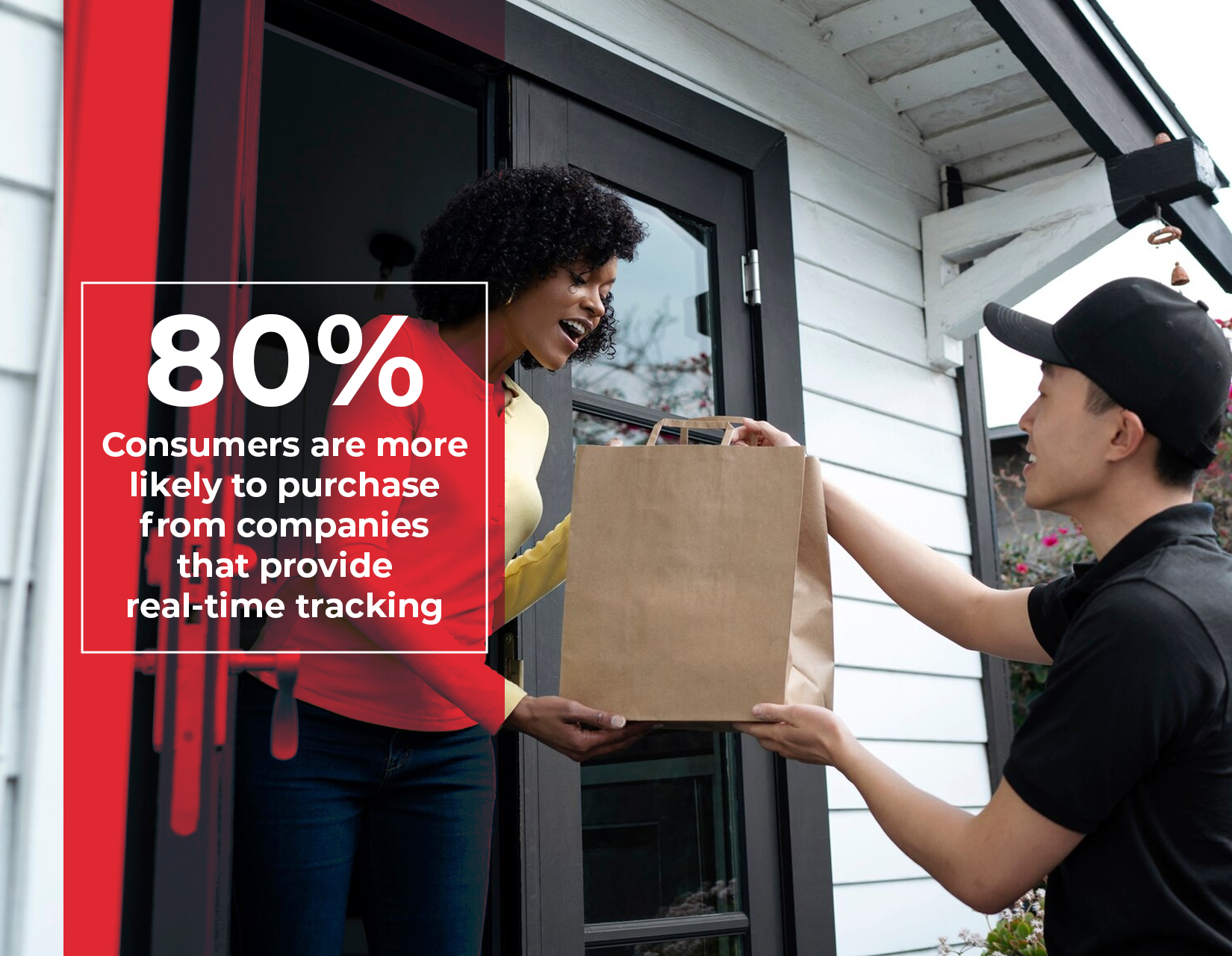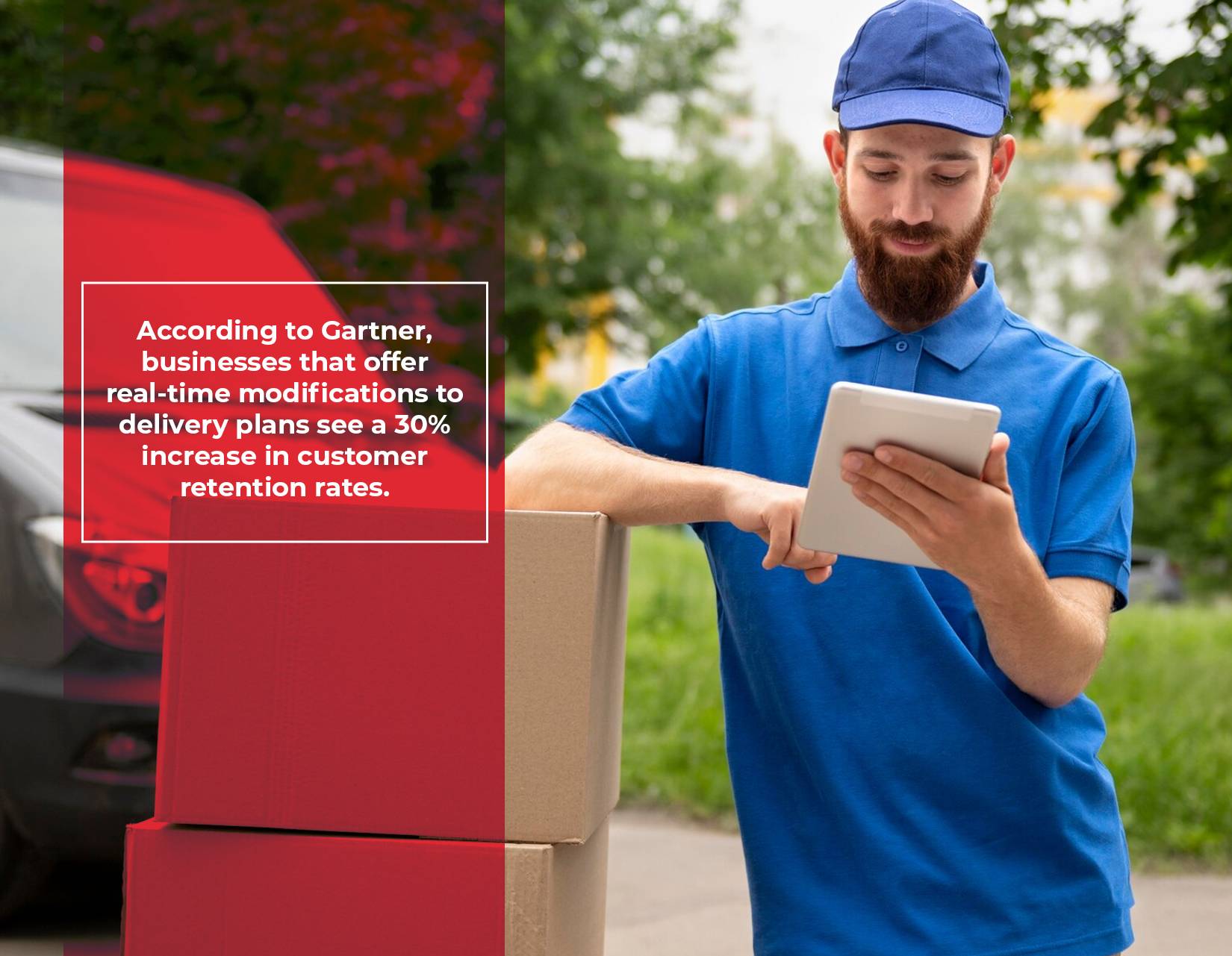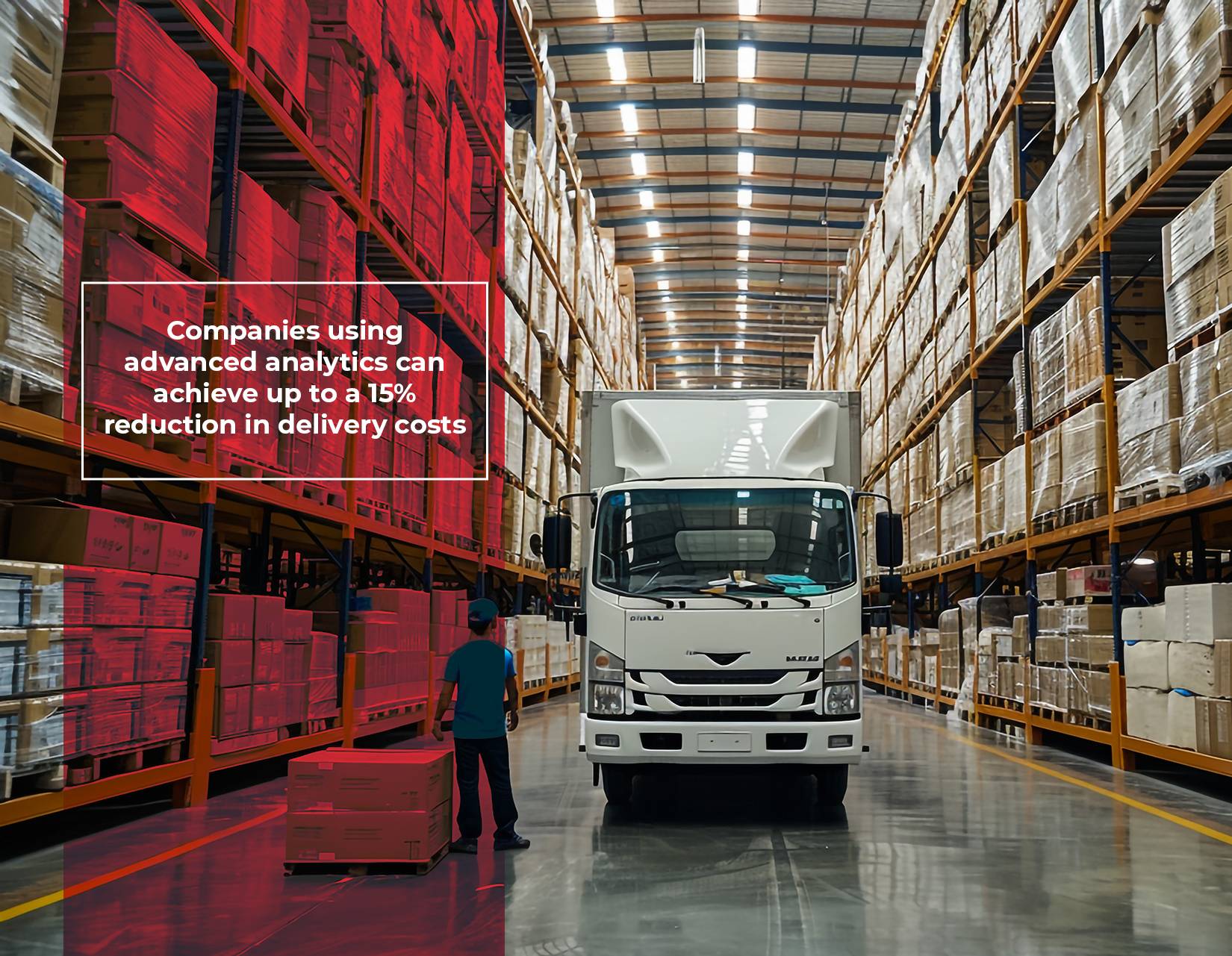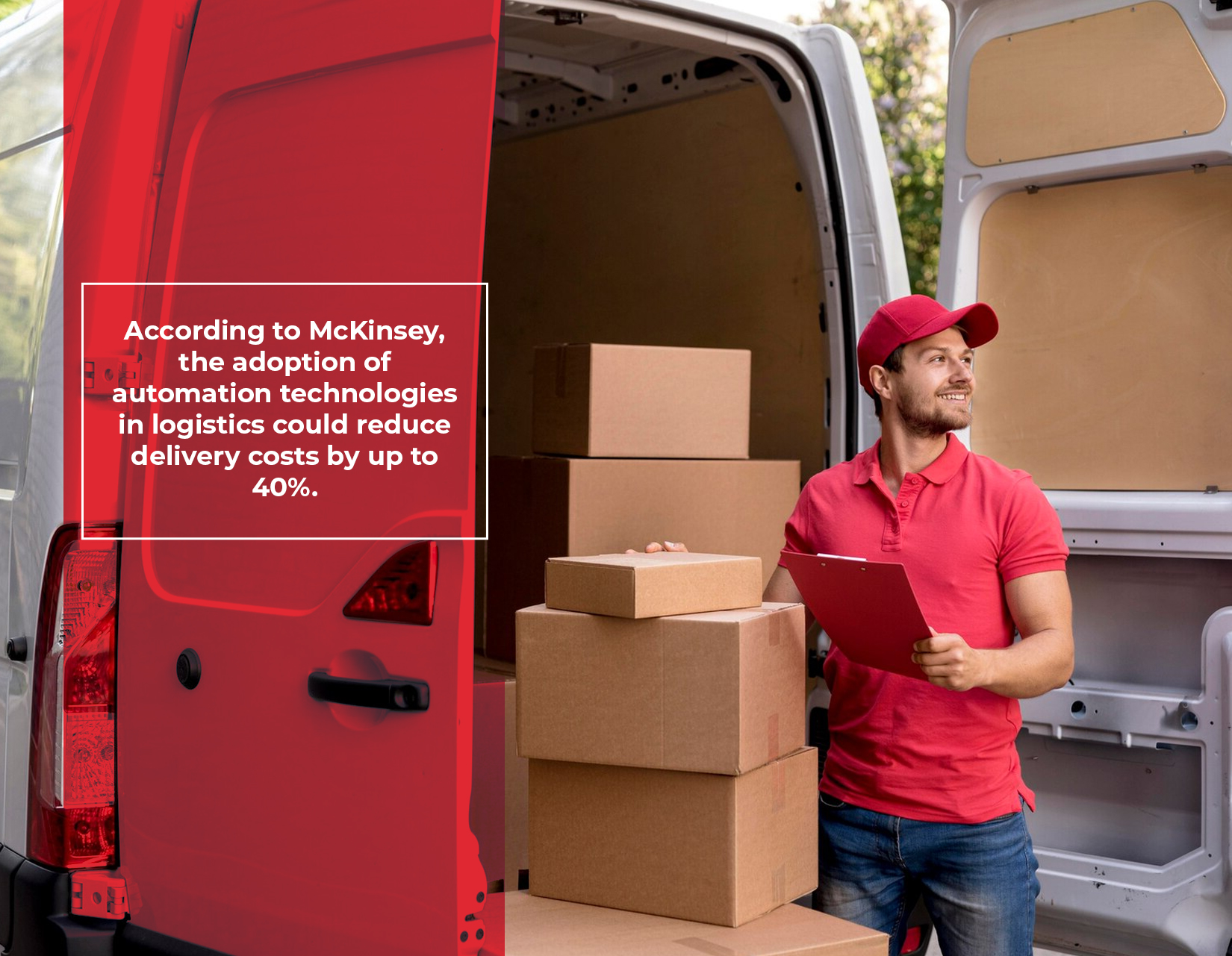In today’s competitive logistics landscape, the last mile is more critical than ever. The final stage of the delivery process, often referred to as the “last mile,” directly impacts customer satisfaction and loyalty. According to Gartner, four key trends shape the expectations in the last mile delivery sector: delivery speed and options, real-time notifications, real-time modifications, and delivery sustainability. Companies like LogiNext are rising to the challenge, providing solutions that meet these expectations and help businesses stay ahead of the curve. This blog explores how LogiNext addresses these last-mile delivery expectations and trends to ensure optimal customer experiences.
Expectations in Last Mile Delivery
1. Delivery Speed and Options:

Speed is no longer a luxury; it’s a necessity. Customers expect fast, flexible delivery options that cater to their needs. Gartner reports that over 70% of customers consider delivery speed a critical factor in their purchasing decisions. This expectation pushes logistics providers to optimize their last-mile delivery processes to meet demanding timelines.
LogiNext leverages advanced algorithms and AI-driven route optimization to ensure swift deliveries. The software calculates the most efficient routes, considering traffic patterns, weather conditions, and delivery time windows. This dynamic planning reduces delivery times and offers multiple delivery options, such as same-day, next-day, and scheduled deliveries. WIth more than 2.9 million service types chosen by the customers, no limit on the configuration.
Moreover, LogiNext’s system integrates with various e-commerce platforms, allowing businesses to offer a range of delivery options at checkout. By providing these choices, companies enhance the customer experience and cater to the growing demand for speed and flexibility in last-mile delivery
2. Real-Time Notifications:

In the age of instant information, real-time notifications have become a standard expectation. Customers want to know where their orders are, who is delivering them, and when they will arrive. Gartner highlights that 80% of consumers are more likely to purchase from companies that provide real-time tracking and updates throughout the delivery process.
LogiNext’s platform addresses this need by offering comprehensive real-time visibility into delivery operations. Its last-mile delivery software enables businesses to send automatic notifications to customers at every step of the delivery journey. From dispatch to transit to final delivery, customers receive updates via SMS, email, or app notifications. This transparency reduces anxiety and builds trust, as customers are always informed about their delivery status. In the last 6 months LogiNext has provided over 28 million timely notifications and alerts.
Additionally, real-time notifications improve operational efficiency by reducing the volume of customer inquiries regarding delivery status. This feature enhances customer satisfaction while allowing businesses to allocate resources more effectively.
3. Real-Time Modifications:

Flexibility is crucial in the last mile delivery space. Customers frequently need to make changes to their delivery details, whether it’s updating their delivery address, modifying delivery times, or rescheduling deliveries. According to Gartner, businesses that offer real-time modifications to delivery plans see a 30% increase in customer retention rates.
LogiNext’s delivery management software empowers customers with the ability to make real-time changes to their delivery instructions. The platform’s user-friendly interface allows for seamless modifications, enabling customers to update their preferences up to the last minute. This feature minimizes the risk of failed deliveries and reduces the need for costly re-delivery attempts. In addition LogiNext has handled over 2.8 million exceptions.
Furthermore, LogiNext’s software provides real-time updates to delivery drivers, ensuring they are always aware of any changes in their routes or delivery instructions. This level of flexibility improves the overall delivery experience and aligns with the growing trend of personalized, customer-centric service.
4. Delivery Sustainability:

Sustainability has become very important in the logistics industry. Consumers are more conscious of their environmental impact and expect businesses to adopt sustainable practices. Gartner predicts that by 2025, 40% of e-commerce deliveries will include a sustainable delivery option, such as eco-friendly packaging or carbon-neutral shipping.
LogiNext addresses this trend by incorporating sustainability into its last-mile delivery solutions. The software optimizes delivery routes to reduce fuel consumption and emissions, promoting eco-friendly operations. By minimizing the distance traveled and maximizing vehicle load capacity, LogiNext helps businesses lower their carbon footprint.
Additionally, LogiNext supports the use of electric vehicles (EVs) and other green technologies. The platform’s route optimization capabilities are designed to accommodate the specific needs of EVs, such as battery range and charging station locations. This support enables businesses to transition towards greener delivery fleets, aligning with consumer demands for sustainable practices.
Trends in Last Mile Delivery
1. Data Collection and Analytics:

Data is becoming a vital asset in last mile delivery. The ability to collect and analyze data enables businesses to optimize delivery routes, manage driver performance, and reduce operational costs. According to a recent study, companies using advanced analytics can achieve up to a 15% reduction in delivery costs and a 30% improvement in customer satisfaction.
LogiNext leverages robust data collection and analytics capabilities to provide real-time insights into delivery operations. By analyzing data from multiple sources, LogiNext helps businesses predict delivery times, identify potential delays, and allocate resources more effectively. This data-driven approach ensures that deliveries are faster, more efficient, and cost-effective.
2. Online Tracking:
![]()
With the rise of eCommerce, customers now expect complete transparency in their deliveries. Online tracking has become a critical component of last mile delivery, offering customers real-time visibility into their orders. A survey by MetaPack found that 96% of customers consider tracking important, with 82% more likely to purchase from a retailer that offers real-time tracking.
LogiNext’s advanced online tracking solutions provide customers with accurate, real-time updates on their deliveries. This feature not only enhances the customer experience by reducing uncertainty but also helps businesses manage customer expectations. With precise tracking, businesses can proactively communicate any delays or changes, thereby improving customer satisfaction and loyalty.
3. Automation of Last Mile Delivery:

Automation is another key trend transforming last mile delivery. With the growing demand for faster deliveries, businesses are increasingly turning to automation to streamline their processes. According to McKinsey, the adoption of automation technologies in logistics could reduce delivery costs by up to 40%.
LogiNext is at the forefront of automating last mile delivery. Its platform offers automated route planning, dispatching, and delivery management, which significantly reduces manual intervention and errors. By automating key processes, LogiNext enables businesses to handle higher volumes of deliveries without compromising on speed or accuracy. This reduces operational costs along with that improves overall efficiency.
FAQs
1. What is an example of a last mile problem?An example of a last mile problem is a delivery driver struggling to find a customer’s exact location in a densely populated urban area, causing delays. This issue can lead to increased costs, missed delivery windows, and reduced customer satisfaction.
2. What are the best practices for the last mile?Best practices for the last mile include optimizing delivery routes, using real-time tracking, providing flexible delivery options, improving communication with customers, utilizing local fulfillment centers, and adopting sustainable delivery methods to enhance efficiency and customer satisfaction.
Conclusion
The last mile is a critical battleground for customer satisfaction in the logistics industry. Meeting the evolving expectations of delivery speed, real-time notifications, real-time modifications, and sustainability is essential for staying competitive. LogiNext offers a comprehensive suite of solutions that address these trends, helping businesses optimize their last-mile delivery processes and deliver superior customer experiences.
By leveraging advanced technologies like AI-driven route optimization, real-time visibility, and flexible delivery management, LogiNext ensures that businesses can meet customer demands while maintaining operational efficiency and sustainability. As the logistics landscape continues to evolve, companies that adopt these innovative solutions will be better positioned to thrive in the competitive last-mile delivery market.
Investing in a robust last-mile delivery solution like LogiNext not only meets today’s customer expectations but also prepares businesses for the future of logistics. Embrace these trends, enhance your delivery operations, and stay ahead of the competition with LogiNext. Click on the red button and book a demo.
Like





















